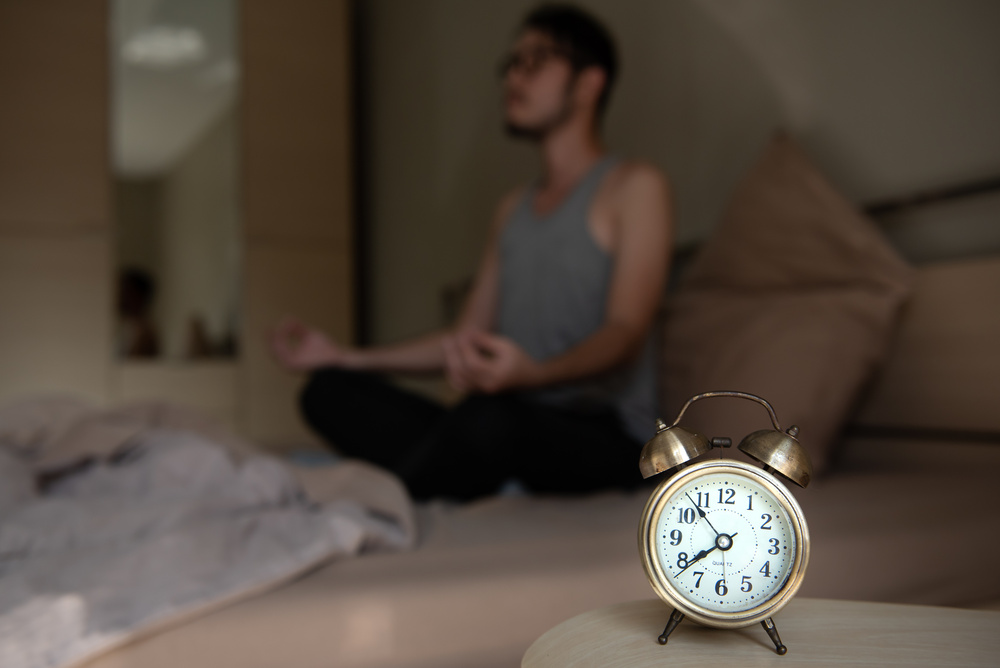
Improving Sleep With Yoga Nidra Rather Than Medication
We are told throughout our lives how important restful sleep is. We hear it so much that occasional sleep problems cause anxiety that only makes things worse. What does a person do when not sleeping well? Conventional wisdom recommends medication. But there are other ways, including something known as yoga nidra.
Scott Moore is a yoga nidra expert and a sleep meditation teacher who offers classes and retreats around the world. He offers yoga nidra as a means of improving sleep and directly addressing insomnia.
According to Moore, yoga nidra is also known as ‘yogic sleep’. He goes on to explain that it is an “incredibly powerful and restorative practice that goes beyond the ordinary realms of relaxation.” Let’s unpack that, shall we?
Relaxation and Sleep
People can have trouble sleeping for any number of reasons. It can be an underlying health issue or an uncomfortable bed. But for many folks, sleeping troubles are directly related to stress and anxiety. People are under so much stress that they cannot relax enough to fall asleep.
By its very nature, yoga nidra focuses heavily on deep relaxation. Yoga practices enhance one’s ability to achieve a state of relaxation and self-awareness. Most importantly, from a sleep perspective, yoga nidra reduces sympathetic nervous system activity while simultaneously boosting the parasympathetic nervous system.
It has been suggested by yoga practitioners that yoga nidra might also:
- Improve alpha brainwave production.
- Increase dopamine release in the brain.
- Reduce cortisol levels.
- Increase melatonin production and release.
- Promote serenity while alleviating the symptoms of depression.
Yoga nidra practitioners insist that what they teach students can improve sleep by helping them fall asleep faster and stay asleep throughout the night. Of course, the jury is still out in terms of scientific evidence. There is some evidence in support of yoga practices to address sleep disturbances, but that evidence is limited.
Advantages Over Medication
Traditional wisdom suggests prescription medications or OTC products to address sleep disturbances. OTC medications are designed to be used on a temporary basis. Likewise for prescription medications, but consumers have to be even more careful with them because they can create a certain level of dependence – which is to say a person might eventually not be able to sleep at all without medication.
One of the big advantages of yoga nidra over medication is that there are no such risks. Yoga nidra is an ancient practice rooted in tantric techniques. It is practiced by way of meditation, verbal cues, and mindfulness. Because there are no medications involved, there is no risk of physical dependence.
Likewise, yoga practices don’t involve side effects. So even if it does not help improve a person’s sleep, there are no worries about negative side effects that would make a person feel worse.
Mindfulness Without the Yoga
A disadvantage of yoga nidra, at least for some people, is the spiritual component. The ancient practice of yoga is rooted in equally ancient religious beliefs. That scares some people away. However, it is possible to practice some of the same techniques without yoga’s spiritual aspects.
For example, mindfulness is a relaxation and stress-relieving practice that is gaining traction among both consumers and psychologists. Mindfulness can be practiced apart from yoga or other similar philosophies.
If you are struggling with sleep, you’re not alone. One of your options may be medication. Just know that medication isn’t the only avenue to pursue. You might consider yoga nidra or a secular counterpart. By engaging in practices that help you relax and focus on the moment, you might be able to improve sleep without medication.
